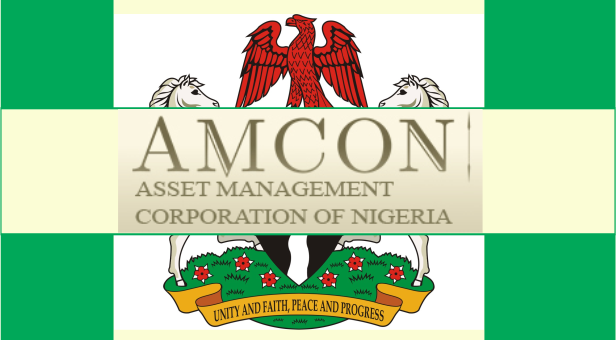- Senate to Examine AMCON’s Role in Economic Recovery
The Chairman, the Senate Committee on Banking, Insurance and other Financial Institutions, Senator Rafiu Ibrahim, says the National Assembly will support the Asset Management Corporation of Nigeria to realise its debt recovery mandate.
Ibrahim said the Senate had discovered the need to give more support to the corporation to succeed in line with its “sunset clause.”
He spoke on Thursday at the opening of the committee’s retreat at the NAF Conference Centre, Abuja, the agency said in a statement.
The senator said, “In this retreat, we hope to make a case for AMCON to take on a larger and more proactive economic responsibility, especially given its special place in the economy. To this end, serious conversation needs to occur on how best AMCON can intervene in the current economic situation of Nigeria beyond asset recovery.”
According to the lawmaker, the fallout of the discussion at the end of the retreat will lead to pronouncements from the 8th Senate, which would comprehensively empower AMCON to better carry out its functions.
“This subject of expanded functions presents an opportunity to further strengthen collaboration and align the objectives of AMCON to the pressing demands of the country,” he added.
Ibrahim stated that it was safe to say that “AMCON has drawn from its proactive and interventional roots in a time of economic crisis for it to take on this new expanded economic role that transcends the banking sector, and seek to revitalise an entire economic system in recession.”
Earlier in his address, the Managing Director/ Chief Executive Officer, AMCON, Mr. Ahmed Kuru, reminded the Senate committee that having fully harvested the low hanging fruits in the first and second stages of AMCON operations, the success or failure of the corporation at this stage would be heavily dependent on the legislature as well as the judiciary “because most obligors of AMCON are employing different antics in law to tie up the corporation in different courts.
Kuru said, “There is the need for a change of strategy. This job is not an easy assignment by any definition because every obligor has a perception of AMCON and is willing to tie us up in court. That is why you see that every week we have fresh enemies. Therefore, we need very strong legislative framework, which would for instance make it possible for all AMCON cases to terminate at the Appeal Court.”
According to him, if the 8th Senate allows the current legal processes on AMCON-related cases to drag-on as it is presently, he does not see AMCON meeting its obligation before its sunset in the next five years.

 Forex3 weeks ago
Forex3 weeks ago


 Naira2 weeks ago
Naira2 weeks ago
 Billionaire Watch2 weeks ago
Billionaire Watch2 weeks ago




 Naira2 weeks ago
Naira2 weeks ago




 Naira2 weeks ago
Naira2 weeks ago




 Naira1 week ago
Naira1 week ago




 Naira4 weeks ago
Naira4 weeks ago




 Naira3 weeks ago
Naira3 weeks ago






















